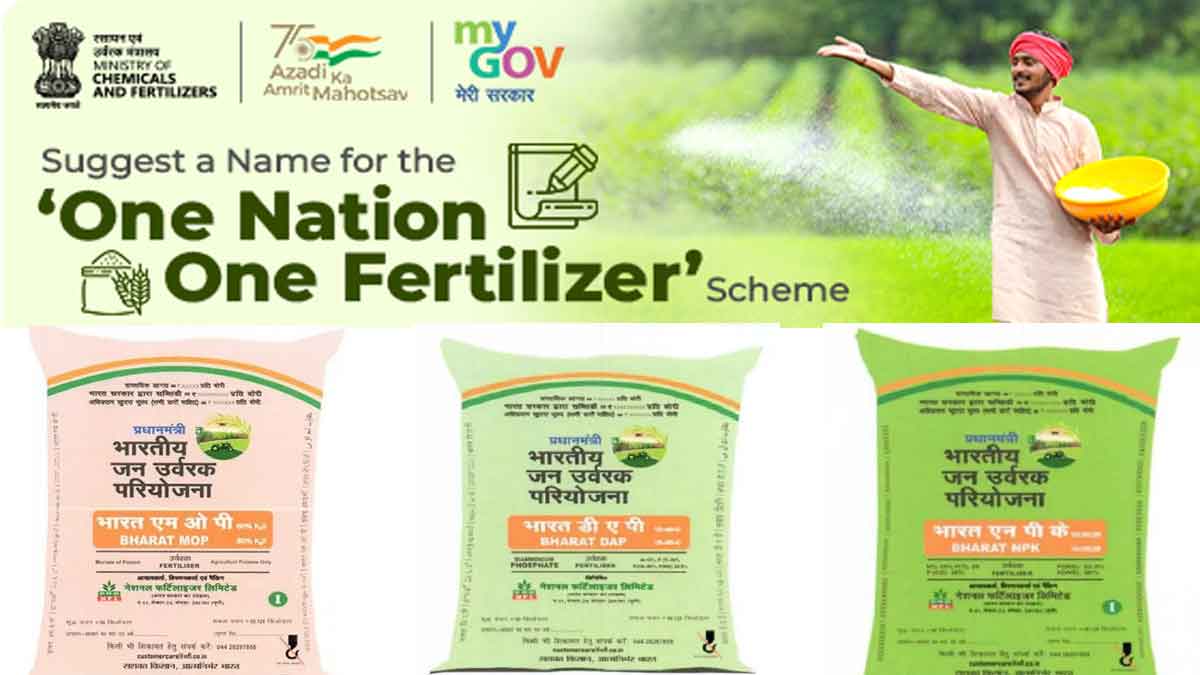Context
-
The Ministry of Chemicals and Fertilisers recently announced that it has been decided to implement One Nation One Fertiliser by introducing a “Single Brand for Fertilisers and Logo” under the fertiliser subsidy scheme named “Pradhanmantri Bhartiya Janurvarak Pariyojna” (PMBJP).
About Pradhanmantri Bhartiya Janurvarak Pariyojna
- The single brand name for UREA, DAP, MOP and NPK etc. would be BHARAT UREA, BHARAT DAP, BHARAT MOP and BHARAT NPK etc. respectively for all Fertiliser Companies, State Trading Entities (STEs) and Fertiliser Marketing Entities (FMEs).
- Also, “a logo indicating Fertiliser subsidy scheme namely Pradhanmantri Bhartiya Janurvarak Pariyojna will be used on said fertiliser bags”.

- Under the new “One Nation One Fertiliser” scheme, companies are allowed to display their name, brand, logo and other relevant product information only on one-third space of their bags.
- On the remaining two-thirds space, the “Bharat” brand and Pradhanmantri Bharatiya Jan Urvarak Pariyojana logo will have to be shown.
What is the government’s argument for introducing this scheme?
The government’s logic for introducing a single ‘Bharat’ brand for all subsidised fertilisers being marketed by companies is as follows:
- The maximum retail price of urea is currently fixed by the government, which compensates companies for the higher cost of manufacturing or imports incurred by them.
- The MRPs of non-urea fertilisers are, on paper, decontrolled. But companies cannot avail of subsidy if they sell at MRPs higher than that informally indicated by the government.
- Apart from subsidising and deciding at what price companies can sell, the government also decides where they can sell. This is done through the Fertiliser (Movement) Control Order, 1973. Under this, the department of fertilisers draws an agreed monthly supply plan on all subsidised fertilisers in consultation with manufacturers and importers.
- When the government is spending vast sums of money on fertiliser subsidy, plus deciding where and at what price companies can sell, it would obviously want to take credit and send that message to farmers.
What can be the drawbacks of the scheme?
A couple of issues are immediately apparent:
- It will disincentivise fertiliser companies from undertaking marketing and brand promotion activities. They will now be reduced to contract manufacturers and importers for the government. Any company’s strength ultimately is its brands and farmer trust built over decades.
-
Currently, in case of any bag or batch of fertilisers not meeting the required standards, the blame is put on the company. But now, that may be passed on fully to the government. Politically, the scheme might well boomerang rather than benefit the ruling party.
Source: IE
Visit Abhiyan PEDIA (One of the Most Followed / Recommended) for UPSC Revisions: Click Here
IAS Abhiyan is now on Telegram: Click on the Below link to Join our Channels to stay Updated
IAS Abhiyan Official: Click Here to Join
For UPSC Mains Value Edition (Facts, Quotes, Best Practices, Case Studies): Click Here to Join
